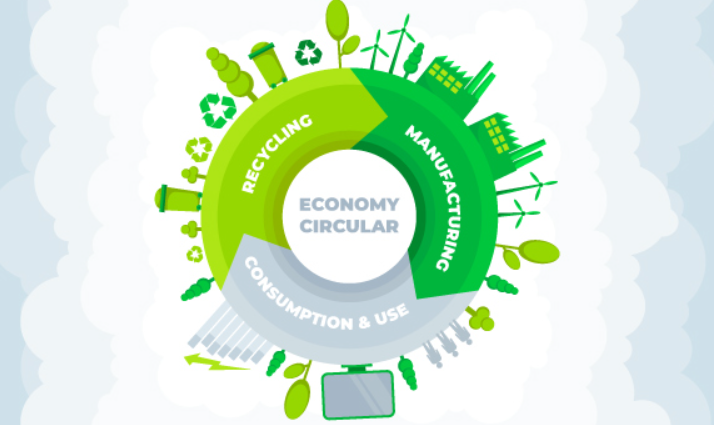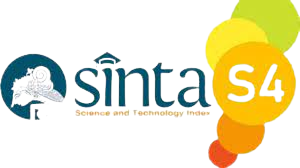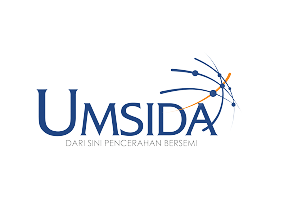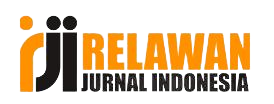Circular Economy Development Policy in Magetan Regency: Case Study of the Leather Industry and its Impact on Improving the Community's Economy
Kebijakan Pengembangan Ekonomi Sirkuler di Kabupaten Magetan: Studi Kasus Industri Kulit dan Dampaknya terhadap Peningkatan Ekonomi Masyarakat
DOI:
https://doi.org/10.21070/jkmp.v13i1.1818Keywords:
Circular Economy, Development Policy, Leather Industry, MagetanAbstract
This study aims to analyze the circular economy development policy in Magetan Regency, focusing on the leather industry and its impact on improving the community's economy, especially on Jalan Sawo, Selosari Village. The method used is a qualitative approach, which includes in-depth interviews with industry players, direct observation at the location, and analysis of documents related to the policy. The results of the study indicate that the implementation of the circular economy policy not only increases community income through the creation of new jobs but also contributes to waste reduction and increased environmental awareness among the community. In addition, this study identifies challenges faced in implementing the policy, such as lack of training and technical support. Recommendations are provided to improve the effectiveness of this policy, including the need for collaboration between the government, private sector, and the community in creating a sustainable circular economy ecosystem. This research is expected to contribute to the development of better policies in the future.
References
Bado , B. (2022). Model Pendekatan Kualitatif: Telaah dalam Metode Penelitian Ilmiah. Sukoharjo: Tahta Media.
Chen, C.-C., Sukarsono, F. M., & Wu, K.-J. (2023). Evaluating a sustainable circular economy model for the Indonesian fashion industry under uncertainties: a hybrid decision-making approach. Journal of Industrial and Production Engineering.
European Commission. (2020). A European Strategy for Plastics in a Circular Economy.
Cresswell, J. (2014). Research Design: Qualitative, Quantitative, and Mixed Methods Approaches. Thousand Oaks, CA: Creswell, J. W. (2014).
Denzin, N. K. (2011). The SAGE Handbook of Qualitative Research. Thousand Oaks, CA: SAGE Publications.
Fatimah YA, Govindan K, & Murniningsih R. (2020). Industry 4.0 based sustainable circular economy approach for smart waste management system to achieve sustainable development goals: a case study of Indonesia. Journal of Cleaner production.
Geissdoerfer, M., Savaget, P., Bocken, N., & Hultink, J. E. (2017). The Circular Economy – A new sustainability paradigm? Journal of Cleaner Production, 757-768.
Haifa, H. A., Oktaviana, Y. A., & Kamal, U. (2024). Tantangan dan Solusi Pengelolaan Limbah Industri: Upaya Menuju Lingkungan yang Bersih dan Berkelanjutan. Jurnal Ilmiah Wahana Pendidikan, 1133-1139.
Kementerian Lingkungan Hidup. (2023). Dukungan Kebijakan untuk Ekonomi Sirkuler di Indonesia.
Korhonen J, Nuur C, & Feldmann A. (2018). Circular Economy as an essentially contested concept . Journal of Cleaner Production.
Nono, E. A. (2024). Kajian Peranan Ekonomi Lingkungan dalam Pembangunan Nasional. Jurnal Ilmu Pertanian Tropis.
Dinas Perindustrian dan Perdagangan. (2022). Dinas Perindustrian Dan Perdagangan. Retrieved from https://disperindag.jatimprov.go.id/
Solechah, M. W., & Sugito. (2022). Pembangunan Ekonomi Berkelanjutan sebagai Kepentingan Nasional Indonesia dalam Presidensi G20. Jurnal Ekonomi dan Ilmu Sosial, 12-23.
Sugiarti, R., Margana, & Warto. (2021). Aplikasi Metode Zero Waste pada Industri Kerajinan Kulit Magetan untuk Mendukung Pariwisata Daerah. Jurnal Pariwisata dan Budaya.
Widyawati, R. F., Hariani, E., Hutabarat, A. Y., Rahmawati, N., & Oktaviani, S. (2023). Pelatihan Pemberdayaan Masyarakat dalam Pengelolaan Limbah Rumah Tangga untuk Menjaga Lingkungan. Jurnal Inovasi dan Pengabdian kepada Masyarakat.
















